One thing Doctor Who has jettisoned over the years is the historical: the grand, sweeping, accurate period drama that in its early years it was famous for. Historically accurate and lacking anything that resembles aliens, the historicals were often huge costume dramas with an emphasis on recreating a moment in Earth’s past.
The show’s first season is most famous for the exceptional historical The Aztecs. But before it aired there was a 13th century adventure through Central Asia. Marco Polo.
One of Doctor Who’s famous (possibly infamous) lost serials, Marco Polo was wiped during the 70s to recycle the tape (an unfortunately common practice when purchasing and storing tape was expensive). Unlike other serials, where an episode or two are missing, all seven episodes of Marco Polo were destroyed. The audio, however, managed to survive and has been turned into an audio book. A few photo stills also exist, which is what I’ve used as pictures for this post.
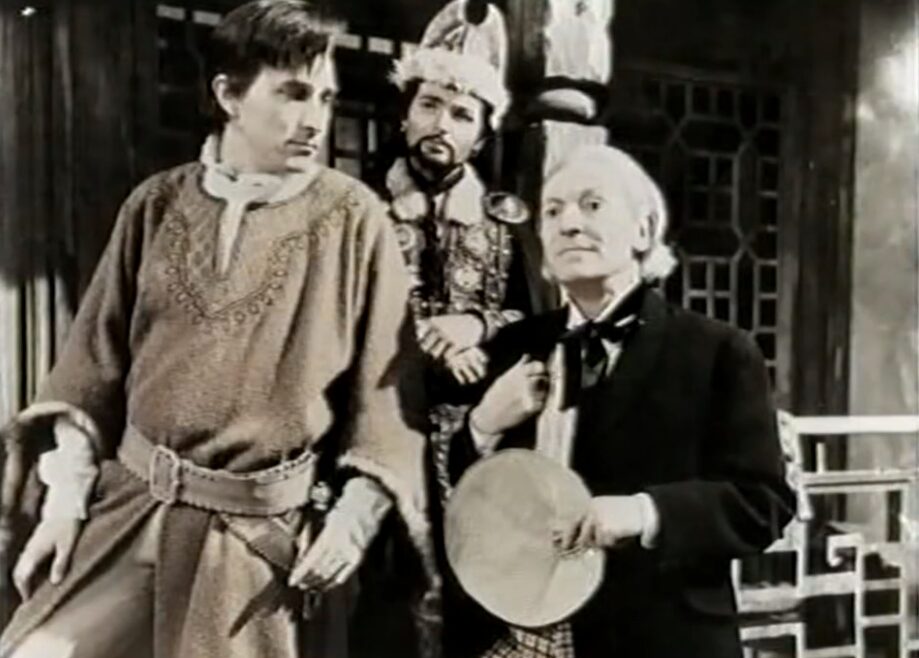
As an audio story, Marco Polo is lacking the no-doubt intricately designed period spectacle that may have distracted us from a plotline that is somewhat lacking. The BBC in this era was committed to meticulously-designed historical pieces and the set and costuming of the story would have no doubt been its best attribute. An attribute that is unfortunately lost.
The episode starts as the TARDIS – clearly damaged from its near-destruction in the previous serial – sets down on “The Roof of the World” in Central Asia in 1289. Here the TARDIS crew meet the eponymous Marco Polo who takes the blue box as a gift for Kublai Khan in the hopes that the Emperor will allow him to finally return to his home in Venice.
With the TARDIS first out of action and then held hostage by Polo, the travellers have no choice but to join the explorer while they wait for the opportunity to return to the TARDIS and fix it. They spend what must have been months travelling across the mountains and deserts of Central Asia with his caravan while they try to convince him to let them leave.
And here is possibly where Marco Polo falls down as a story. Trapped in a time and place of great historical and geographical interest, our protagonists nonetheless spend the entire trip trying to leave. No one – not even history teacher, Barbara – seems particularly excited about this chance to witness history. In fact, with Ian once again in the role of swashbuckling hero and the Doctor mostly benched (for real life health issues), Barbara barely has a role in the text at all while Susan is relegated to giggling gal pal to the teenage Ping Cho – travelling to Peking (Beijing) to marry a much older man she has never met.
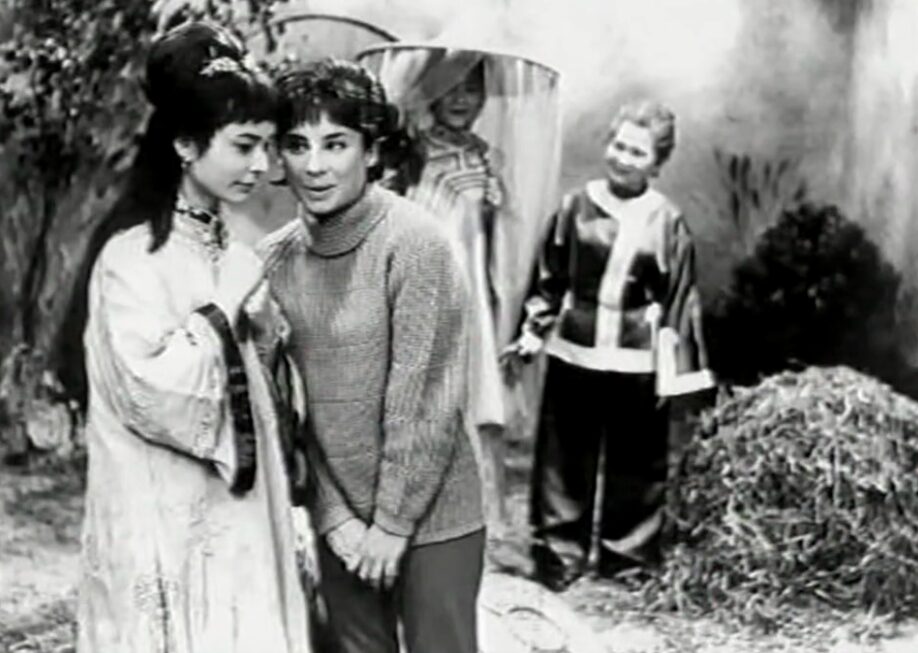
In the absence of the lush period sets, the writing in the first five or so episodes is more obviously narrative busy work as the caravan makes it way across the Gobi Desert to Kublai Khan’s palace at Shangdu. The group then makes it way to the Imperial Palace at Peking with the Emperor, with whom the Doctor strikes up an unconventional friendship.
Nonetheless, there is a simmering plot underpinning the underwhelming plotline. The Mongol warlord, Tegana, who accompanies the caravan, is working against Polo in the service of Khan Noghai; a scheme that eventually leads to an assassination plot against Kublai Khan himself. It’s a plot that the Doctor and his companions foil, as much for history as for their own benefit.
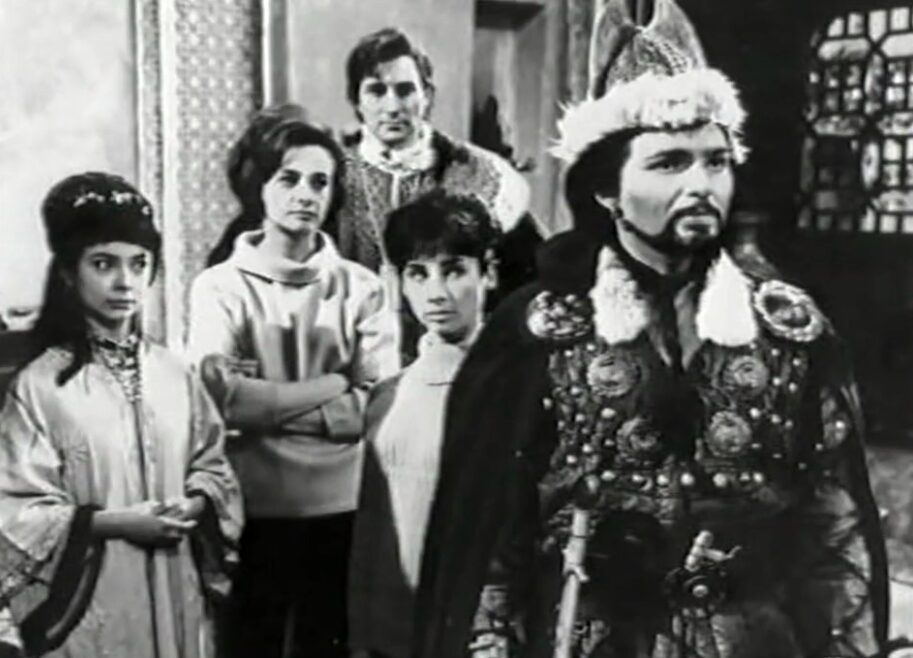
While it’s no doubt more coincidence than brilliance, the episode has an ongoing motif about trust that is as important for our newly-bonded companions as it is for someone trying to navigate an uneasy 13th century military dictatorship. Polo himself is as much an outsider as our companions are, yet his fate is as dependent on the whims of Kublai Khan as our companions’ turn out to be. In a world where trust is a gamble and your life can be forfeit over very little, everyone’s survival is dependent only on whether their word is good enough. Everyone’s words and actions are constantly weighed against their possible motives.
It’s a world our very 20th century protagonists are simply not fit for and one that Polo has clearly tired of. It is a world, however, that a man like Tegana is master of and so it’s no surprise that he nearly wins the game of deceit. Nonetheless, Polo bests him in a sword fight and the Emperor allows both him and our companions to leave.
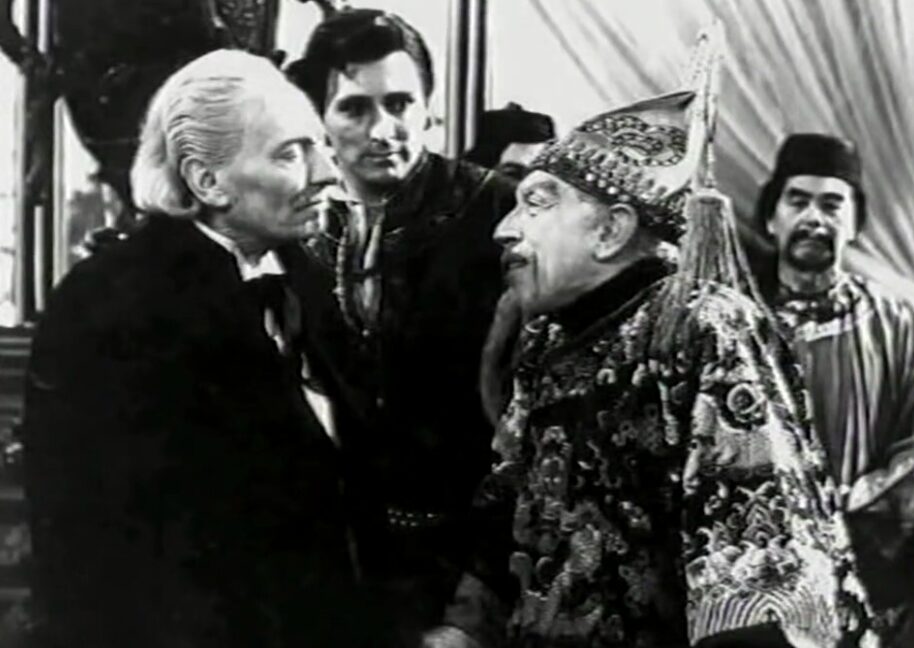
As the TARDIS grinds its way into history, Marco Polo prepares finally to go home where his tales of travels were legendarily disbelieved.
They would not believe half the things I have seen in Cathay
Marco Polo
As a serial, Marco Polo is possibly no great loss to the Doctor Who canon. It is nonetheless a shame that one of the few historicals the show attempted is gone especially with the BBC’s reputation for historical set accuracy. But while Marco Polo is probably gone for good, the superior The Aztecs survives. And for that at least we can be grateful.

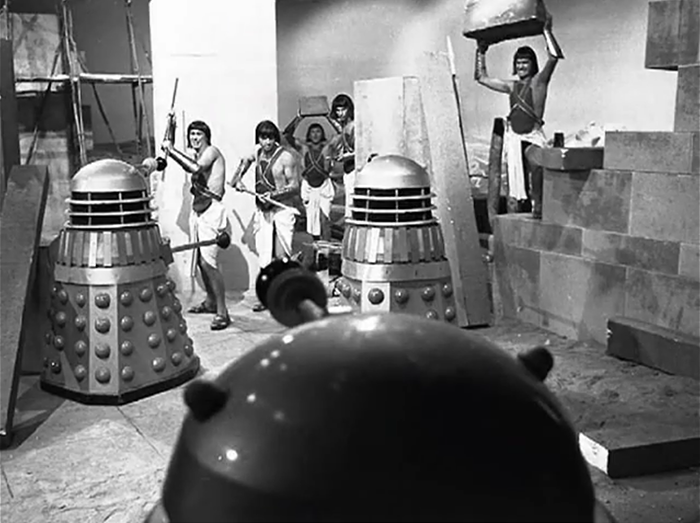
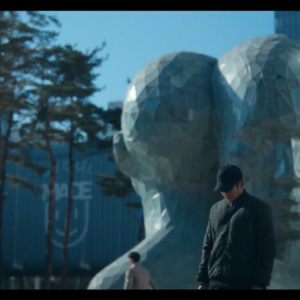
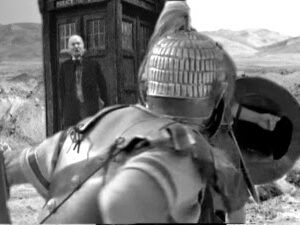
2 thoughts on “Marco Polo: Doctor Who, S1 Serial 4”